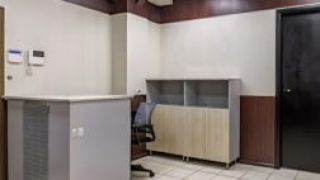Company registration in the NIPT
The 2017 establishment of the National Industrial Petrochemical Technopark marked a milestone in Kazakhstan's efforts to accelerate petrochemical sector development to drive economic growth. The key goal was to attract domestic and foreign direct investment into advanced, innovative projects.
This publication provides an overview of business activities within the zone and examines key aspects related to company registration in the NIPT.
- Attract investment into advanced hydrocarbon processing and production of globally competitive petrochemical goods.
- Stimulate capital projects in petrochemicals using public-private partnerships.
- Develop interconnected, innovative, and eco-friendly petrochemical enterprises.
- Access international markets and expand Kazakhstan's export capacity.
- Initiate R&D to improve existing and develop new technologies.
- Provide training and education aligning to global industry standards.
Location and area
The NIPT encompasses 3,475.9 hectares in Kazakhstan's resource-rich Atyrau region. Proximity to substantial hydrocarbon reserves and transport infrastructure provides convenient feedstock access and logistics.
The zone's location near pipelines, rail, and the Caspian Sea presents production and export advantages. Facilities meet companies' operational requirements, including production sites, R&D centres, and supporting infrastructure. Plans entail building roads, power, water supply, etcetera to ensure reliable plant operations. Worker accommodation, schools, and hospitals will also enable an attractive business environment.
Key activities and project types
The zone focuses on feedstock processing and petrochemical production, including polymers, fibres, fertilizers and related goods. Projects utilise innovative, eco-friendly technologies meeting international quality and safety benchmarks. These capital investments strengthen Kazakhstan's economy and environmental sustainability.
NIPT SEZ key pros
Registration in NIPT SEZ offers companies significant advantages that can prove decisive for petrochemical businesses.
Key benefits for NIPT companies include considerable tax incentives, enabling firms to accelerate growth through reinvesting savings, including:
- Exemption from CIT, allowing capital to be channelled into business development instead.
- A zero property tax rate on zone assets, reducing companies' financial burden.
- Land tax relief, rendering property investment more appealing.
- Simplified customs procedures like duty and VAT relief on imported equipment and inputs for investment projects.
The NIPT provides tenant enterprises with the developed infrastructure and resources critical for success, including:
- State-of-the-art production and logistics facilities enabling efficiency and convenient transport links.
- Access to competitively priced power and heating sources. Reliable utilities underpinning manufacturing operations.
- Communications services, including high-speed internet and telephony.
Registering in the NIPT unlocks unique business development and internationalization opportunities:
- Collaboration on cross-border initiatives and partnerships with foreign investors and zone companies.
- Access to export markets, with customs and administrative support to broaden sales geography.
- Attracting foreign capital to implement large-scale projects and upgrade technologically.
Company registration process in NIPT
Registering a company NIPT special zone constitutes a pivotal step for commencing operations in this industrial cluster. The registration process entails several stages and necessitates submitting required documents and meeting established conditions.
Registration stages
Preparing a business plan and investment proposal
The initial phase involves formulating a comprehensive business plan and investment project to be implemented in the special economic zone. The proposal must detail the objectives, expected outputs, capital outlays, financing sources, economic efficiency projections and risk assessments.
Submitting an application and supporting documents
The applicant must submit a zone registration application accompanied by the business plan and necessary documents:
- Special Economic Zone Registration Form
- Proof of company registration/renewal
- Managing Director's identification copy
- Company registration number certificate
- Copy of founding/constitutional documentation
- Extract of corporate decision to operate in SEZ
- Latest audited financial statements
- Project feasibility study
- Bank account transaction/credit reports
- Tax clearance certificate
Verifying materials and evaluating proposal
The zone administrator reviews submissions for compliance with requirements and objectives. Preliminary assessments normally occur within 10 working days, while overall appraisal can take 30–60 days depending on scope and complexity.
Obtaining participant status
Upon successfully vetting the proposal, participant status is conferred, enabling access to all incentives and advantages.
Requirements for feasibility study structure
A good feasibility study should include the following key points:
- Preface: the preface analyses current socioeconomic, geographical and engineering conditions where the project is envisaged within the zone, alongside attainable objectives.
- Executive summary: it outlines the viability, main activities, scale and capacity, pivotal components, staged evolution, proposed financing and timeframes.
- Project description: a comprehensive overview discusses market positioning, legal form, focus areas, accomplishments, and economic metrics. Details include:
- Goods/services specifications
- Company background
- Key metrics
- Management structure
- Personnel competencies and training needs
- Health and safety procedures
- Sector analysis and prospects
- Regional impact and social responsibility
- Export/import substitution potential
- Competitive advantage
- Development status
- Intellectual property rights
- Regulatory and certification prerequisites
- Sustainability commitment
- Marketing and distribution plan: analysis of current and projected demand for outputs in target segments. Strategies for pricing, promotion, placement channels, customer service, sales projections.
- Operational plan: technological configurations, raw material sourcing, equipment specifications, spatial and infrastructure necessities, personnel requirements and training.
- Financial analysis: cost and revenue projections, financing options and impact appraisal, including:
- Preliminary costing
- Capital expenditure schedule
- Transaction fees
- Investment analysis: payback, return metrics
- Funding strategies and alternatives
- Risk factors and mitigation
- Broader economic context
- Cost-benefit rations and additionally
- Supporting materials: supplementary documents substantiating key study areas: detailed calculations, visual samples etc.
With extensive expertise enabling client registration and compliance across various jurisdictions, including Kazakhstan's special economic zones, YB CASE offers end-to-end services to streamline this process.
Our seasoned professionals offer integrated assistance throughout all NIPT special zone registration stages: from compiling requisite paperwork to providing ongoing legal and accounting support aligned with your business needs.
Leveraging our specialized knowledge and resources, we guide companies through addressing statutory requirements, attaining appropriate permissions and structuring operations in a tax efficient manner: thereby allowing management teams to focus on commercial aspects.
Our hands-on approach also encompasses regular monitoring to identify regulatory updates across tax, legal, HR, and other functional areas — enabling proactive measures that ensure consistent compliance.
With established credentials across registration, localized structuring and compliance support, YB CASE strives to offer corporations a simplified pathway to commencing and scaling initiatives within Kazakhstan's thriving special economic zones.








 Audit and Accounting support
Audit and Accounting support Opening a bank account in Kazakhstan
Opening a bank account in Kazakhstan  Having an eye on the condition of digital mining sector in Kazakhstan
Having an eye on the condition of digital mining sector in Kazakhstan  Registration of a Payment Operator in Astana IFC Kazakhstan
Registration of a Payment Operator in Astana IFC Kazakhstan  Launching an Investment Venture at the Astana International Financial Center (AIFC) in Kazakhstan
Launching an Investment Venture at the Astana International Financial Center (AIFC) in Kazakhstan  Registration of a Cryptocurrency Company in Astana IFC, Kazakhstan
Registration of a Cryptocurrency Company in Astana IFC, Kazakhstan  Company registration in Astana Hub
Company registration in Astana Hub  Redomiciliation of a company to the AIFC, Kazakhstan
Redomiciliation of a company to the AIFC, Kazakhstan 



